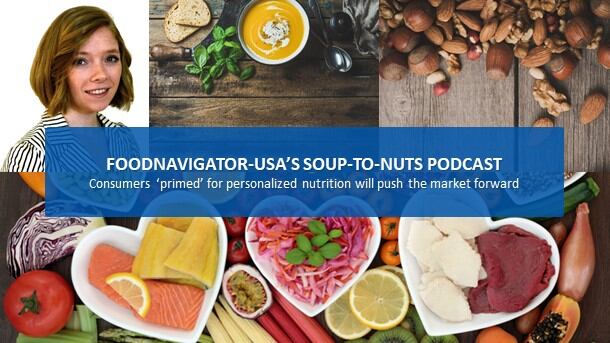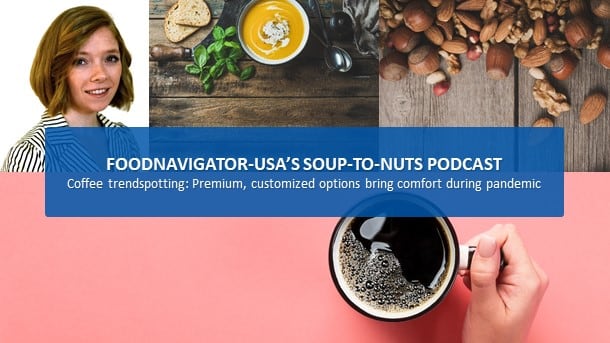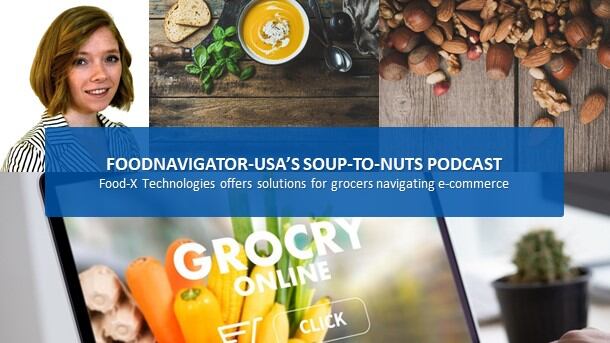According to IRI’s April 4 COVID-19 Impact Report: Economy Report, sales of immunity products jumped 199% in the year ending March 22 and the number of people purchasing the products is up 125%. Sales of vitamins also are up 77% as are sales of gastrointestinal products with probiotics, which increased 30%.
While these products may provide a level of physical and mental aid during the ongoing crisis, they represent only the tip of the iceberg when it comes to the potential health benefits of a well-balanced and tailored diet. According to the recently formed American Nutrition Association, “there is a rich and evolving body of science illuminating nutrition’s impact on our health,” and “can prevent and reverse disease.” But, it adds, “because our biology is unique, personalized nutrition most powerfully taps our health potential.”
Even before COVID-19, the idea of personalized nutrition and the companies offering consumers access to it, have been gaining traction in the US. But for the concept to reach its full potential ANA leaders say industry and the broader nutrition science community must agree on standards and scalability in research, data, training, products, services and clinical practice.
In this episode of FoodNavigator-USA’s Soup-To-Nuts Podcast, ANA CEO Michael Stroka and ANA Foundation Board Member Tom Blue share a proposed definition of personalized nutrition that ANA published in the Journal of the American College of Nutrition that they think will “catalyze the evolution of the field.” They also discuss the marketing potential of personalized nutrition for food and beverage manufacturers, strategies for overcoming road blocks that could hinder the segment’s development and where they see the space in five years.
[Editor’s note: Never miss an episode of FoodNavigator-USA’s Soup-To-Nuts podcast – subscribe on iTunes.]
‘A springboard to embed personalized nutrition in the healthcare system’
Founded by a coalition of like-minded sister organizations, the American Nutrition Association is on a mission is to move nutrition to the forefront of healthcare culture from its current status as an afterthought.
To do that, Stroka explains, the non-profit and key stakeholders worked together to draft the proposed definition of personalized nutrition, which he said he believes can serve as “a springboard to embed personalized nutrition in the healthcare system to prevent, treat, and manage disease, and optimize human health.”
He explained that science, data, technology and “the knowhow” around health, nutrition and individual characteristics are all coming together now, allowing consumers and healthcare providers to better understand different elements of patients’ care.
To ensure these tools are best used together for the health of patients in a way that advances personalized nutrition but also protects privacy, Stroka said ANA “really felt it was important to start to lay down some markers around what is personalized nutrition.”
Ultimately, the core definition ANA and others landed on is that “personalized nutrition is a field that leverages human individuality to drive nutrition strategies to prevent, manage and treat disease and optimize health,” he said.
He added that ANA further broke down the definition into three key components: science & data, personalized nutrition training and education, and guidance and therapeutics.
While drilling down into each of these segments is a big undertaking, Stroka said setting perimeters for each will make it easier for governmental bodies, insurance companies and the medical community to incorporate personalized nutrition into healthcare, including through rights to practice, insurance, reimbursement, lab ordering and other elements.
Consumers are primed for personalized nutrition
Even though ‘personalized nutrition’ isn’t yet a household term, Blue believes it soon will be because so many consumers are trying to take control of their health but are frustrated by inconsistent results from fad diets and a one-size fits all approach to dietary recommendations.
“The consumer population has been sort of primed with the frustration of the failings of one-size-fits all nutritional advice and then further primed with the celebration of the sequencing of the genome back in 2000-2001 as unlocking the book of life,” Blue said.
Blue adds there are several ways that innovative entrepreneurs can answer the consumer call for new solutions and begin to help shape the idea of personalized nutrition. But he says that each solution must include three key components in order to succeed, including a prescribing function, a consumption component and a feedback loop.
“The winners are going to find that they’ve won because number one, they’re working from sound science and that’s manifested as having achieved outcomes for people that are sufficient to keep people feeling like there’s value,” he said.
Another element of success will recognizing that “its not just a nutrition solution but its an experience that people are having with the company. There is a relationships that has to occur that is different than when you are just selling a supplement or food product,” he added.
Overcoming challenges
While the opportunity for entrepreneurs is great in the emerging personalized nutrition space, so too are the roadblocks, which Blue says run the gamut from scientific logistics, to marketing claims, to consumer retention and even fulfillment.
He also noted that further down the line consumer retention may become more difficult. He explained that early adopters will be more forgiving as companies figure out technology and different business models. But once the idea of personalized nutrition goes mainstream, consumer leniency will drop off dramatically.
Stroker adds that fulfillment for companies playing on the traditional food side will also be difficult, but that is also where nutrition professionals can help.
“It is one thing to just recommend a few different supplements. It is a whole other thing to recommend some pretty serious changes to a person’s lifestyle around what they are going to be eating, what the timing of that eating,” will there be additional cooking or a meal service, he said, adding, “There’s a lot of different ways to approach that … but that’s a big change for some individual.”
A bright future
The idea and marketplace for personalized nutrition may still be in its early days, but Stroka says he believes it will take off quickly – especially as the science continues to evolve.
“The science is just snowballing, right? So, we see that within five years we’re going to have so much greater information just through the science. It’s the integration of the data and the science. The more we understand the science, the meaning, the mechanisms of how the individual genome, microbiome, etc, interfaces with nutrients” the more positive reinforcement we will have in the feedback loop, he said.
Likewise, he said, more practitioners will begin engaging with personalized nutrition so that overtime they will see it as a frontline therapy.
Blue adds that advances in technology and consumer awareness also will exponentially increase in the
Overall, both men agree that personalized nutrition is a fertile area for development during the current pandemic and well into the future as Americans increasingly look for ways to improve their health and wellness.




